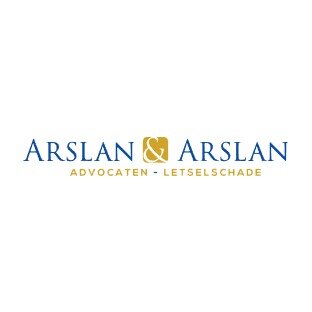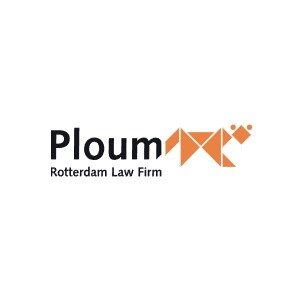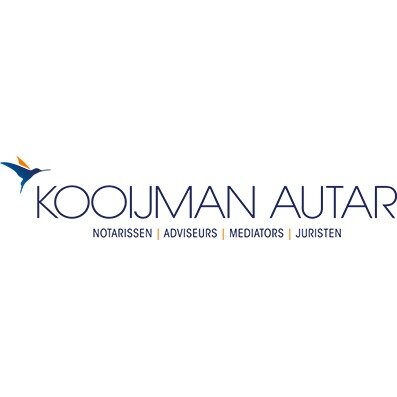Best Energy, Environment & ESG Lawyers in Rotterdam
Share your needs with us, get contacted by law firms.
Free. Takes 2 min.
List of the best lawyers in Rotterdam, Netherlands
About Energy, Environment & ESG Law in Rotterdam, Netherlands
Rotterdam is one of the Netherlands’ most important industrial and port cities. Because of its strategic location and the presence of significant industry and shipping, Energy, Environment, and ESG (Environmental, Social & Governance) legal issues are always relevant. Energy law covers the production, distribution, and regulation of energy, including renewable sources. Environmental law pertains to the protection and regulation of natural resources, pollution controls, and compliance requirements for businesses. ESG law is an emerging field focusing on the broader set of standards concerning a company’s social and environmental impact as well as corporate governance. As the Netherlands moves ambitiously toward sustainability and responsible business practices, legal frameworks in Rotterdam are evolving to meet local, national, and EU standards.
Why You May Need a Lawyer
Legal expertise in Energy, Environment & ESG is often required by individuals, businesses, NGOs, and local authorities. Typical situations include:
- Permitting and licensing for energy projects (like wind farms, solar installations, or bioenergy plants)
- Environmental impact assessments and compliance with Dutch and EU environmental regulations
- Disputes over pollution, sustainable land use, or emissions standards
- Implementing or challenging ESG policies within your business
- Dealing with government enforcement actions, inspections, or fines
- Advising on sustainability-oriented investments and project finance
- Transaction support in mergers, acquisitions, or restructuring with environmental or ESG considerations
- Public participation procedures involving local projects
Legal advice ensures that you stay compliant, avoid fines, safeguard your investments, and contribute positively to sustainability efforts in Rotterdam.
Local Laws Overview
Rotterdam is governed by Dutch law, which is highly influenced by European Union regulations. Key aspects include:
- Environmental Management Act (Wet milieubeheer): The core of Dutch environmental regulation, governing permits, environmental impact, and enforcement.
- Energy Act (Energiewet): Regulates the generation, distribution, and supply of energy, supporting the energy transition to renewables.
- Climate Policy: The Dutch Climate Act and Rotterdam’s local climate policies set ambitious targets for reducing greenhouse gas emissions and promoting sustainability.
- ESG Reporting and Compliance: Large public interest companies are required to report on non-financial information, with rules increasingly aligned with EU directives and regulations, such as the Corporate Sustainability Reporting Directive (CSRD).
- Permitting: Building or operating energy infrastructure, changing land use, or starting new industrial projects in Rotterdam often requires multiple permits and environmental impact assessments.
- Water Management Laws: As a delta city, Rotterdam faces significant water management and flood protection requirements, governed by both local and national regulations.
- Local Initiatives: The Rotterdam Climate Initiative and city-specific rules can introduce further requirements for sustainable construction, waste management, and energy efficiency.
Frequently Asked Questions
What types of energy projects need permits in Rotterdam?
Almost all energy generation projects, including solar parks, wind turbines, biomass plants, and energy storage facilities, require permits from local and sometimes national authorities. The exact permits depend on the project size and type.
What is an Environmental Impact Assessment (EIA)?
An EIA is a legal process requiring developers to assess and report the environmental effects of significant projects. In Rotterdam, this is often needed for industrial, infrastructural, or large-scale energy projects before permits are granted.
Are there specific rules for ESG reporting in Rotterdam?
Yes, companies of significant size must comply with national laws and European directives on ESG reporting. Criteria are set according to company size, sector, and public relevance. Rotterdam businesses may also face additional local sustainability standards.
How does Rotterdam handle air and water pollution?
The city follows strict Dutch and EU standards on air and water quality. Inspections are common, and violations can lead to sanctions, clean-up orders, or operational shutdowns. Special rules apply due to the proximity of the port and industrial activities.
What are the consequences of breaching environmental permit conditions?
Consequences include fines, mandatory corrective measures, revocation of permits, or even criminal prosecution for serious offenses. Immediate suspension of activities may occur in severe cases.
How can businesses in Rotterdam ensure compliance with ESG standards?
Businesses should implement internal compliance programs, stay updated on legal changes, consult experts on ESG matters, and prepare accurate reports. Consulting a lawyer who understands the local context is highly recommended.
Are there legal incentives for renewable energy in Rotterdam?
Yes, various national and EU incentives exist, such as subsidies, tax breaks, and grants for renewable energy projects, energy efficiency improvements, and innovation in sustainability. Lawyers can help identify and apply for these incentives.
How are communities involved in local environmental decisions?
Public participation is a vital part of the environmental assessment and permitting process. Citizens can provide feedback, voice concerns, or file objections during designated consultation periods.
What role does Rotterdam’s port play in environmental regulation?
As Europe’s largest seaport, Rotterdam’s port is subject to specialized environmental controls on shipping emissions, waste processing, and industrial pollution, all efficiently monitored and enforced by local authorities.
How soon should I consult a lawyer if I have a legal issue involving energy, environment, or ESG?
Early involvement is advisable. Consulting a lawyer from the start can prevent costly mistakes, streamline permitting, handle disputes proactively, and ensure you comply with all applicable laws and regulations.
Additional Resources
- Netherlands Enterprise Agency (Rijksdienst voor Ondernemend Nederland - RVO) - guidance on energy and sustainability regulations
- Municipality of Rotterdam Environment Department - information on local laws, permits, and environmental initiatives
- Netherlands Emissions Authority (NEA) - details on emissions trading and monitoring
- Rotterdam Climate Initiative - updates on climate action and local sustainability programs
- Dutch Environmental Law Association (Vereniging voor Milieurecht) - more insights on Dutch environmental law
- Local legal aid offices - access to confidential legal advice and referrals
Next Steps
If you believe you need legal assistance in Energy, Environment & ESG in Rotterdam, consider the following steps:
- Identify your specific issue or concern and gather all relevant documentation
- Contact a lawyer or legal advisor specializing in Energy, Environment & ESG law
- Request an initial consultation to assess your situation, understand your options, and plan a strategy
- Engage with local resources and authorities as advised by your legal counsel
- Stay proactive about compliance, reporting, and deadlines to avoid unnecessary legal risks
Proper legal support in Rotterdam will help navigate complex regulations, take advantage of incentives, and secure your reputation as a responsible contributor to the city’s sustainable future.
Lawzana helps you find the best lawyers and law firms in Rotterdam through a curated and pre-screened list of qualified legal professionals. Our platform offers rankings and detailed profiles of attorneys and law firms, allowing you to compare based on practice areas, including Energy, Environment & ESG, experience, and client feedback.
Each profile includes a description of the firm's areas of practice, client reviews, team members and partners, year of establishment, spoken languages, office locations, contact information, social media presence, and any published articles or resources. Most firms on our platform speak English and are experienced in both local and international legal matters.
Get a quote from top-rated law firms in Rotterdam, Netherlands — quickly, securely, and without unnecessary hassle.
Disclaimer:
The information provided on this page is for general informational purposes only and does not constitute legal advice. While we strive to ensure the accuracy and relevance of the content, legal information may change over time, and interpretations of the law can vary. You should always consult with a qualified legal professional for advice specific to your situation.
We disclaim all liability for actions taken or not taken based on the content of this page. If you believe any information is incorrect or outdated, please contact us, and we will review and update it where appropriate.
Browse energy, environment & esg law firms by service in Rotterdam, Netherlands
Rotterdam, Netherlands Attorneys in related practice areas.














